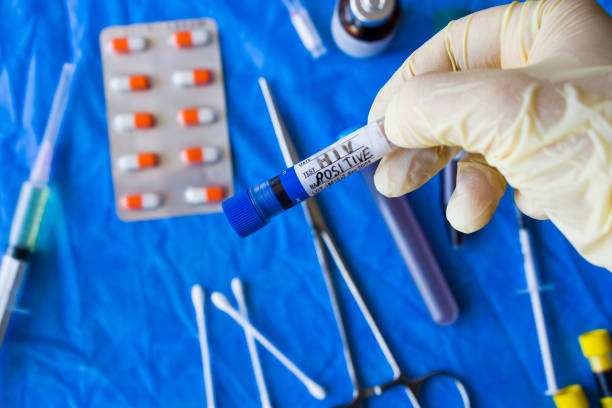Symptoms of HIV and Treatment Options: A Comprehensive Overview
HIV (Human Immunodeficiency Virus) weakens the immune system by targeting and destroying CD4 cells, essential components in fighting infections. Left untreated, HIV can lead to AIDS (Acquired Immunodeficiency Syndrome), where the immune system is severely compromised. Prompt treatment can prevent progression to AIDS and help individuals with HIV lead healthy lives. This article discusses the stages of HIV, its symptoms, and the treatment options that help manage the infection.
What Is HIV and How Does It Affect the Body?
HIV (Human Immunodeficiency Virus) weakens the immune system by targeting and destroying CD4 cells, essential components in fighting infections. Left untreated, HIV can lead to AIDS (Acquired Immunodeficiency Syndrome), where the immune system is severely compromised. Prompt treatment can prevent progression to AIDS and help individuals with HIV lead healthy lives. This article discusses the stages of HIV, its symptoms, and the treatment options that help manage the infection.

Signs and Symptoms of HIV
HIV infection progresses in stages, each associated with specific symptoms.
Acute HIV Infection Symptoms (Early Stage):
The initial phase of HIV infection occurs within 2 to 4 weeks of exposure. This stage is referred to as acute retroviral syndrome (ARS) and can be mistaken for the flu. Symptoms typically include:
- Fever
- Sore throat
- Swollen lymph nodes
- Fatigue
- Rash
- Joint and muscle aches
- Headache
These symptoms often disappear within a few weeks, but the virus continues to replicate in the body.
Clinical Latency or Chronic HIV Infection:
After the acute phase, the virus enters the clinical latency stage. People in this phase may not experience noticeable symptoms, but the virus is still active. Without treatment, this stage can last for years, with possible mild symptoms such as:
- Weight loss
- Fatigue
- Diarrhea
- Recurrent infections (like yeast or viral infections)
With proper treatment, the progression of HIV can be slowed, and people can live relatively healthy lives during this stage.
AIDS Stage (Final Stage):
Without treatment, HIV eventually progresses to AIDS, a condition in which the immune system is severely weakened. Symptoms of AIDS include:
- Rapid weight loss
- Chronic diarrhea
- Night sweats
- Fever
- Persistent fatigue
- Skin rashes
- Swollen lymph nodes
- Mouth sores
- Pneumonia
- Neurological issues (such as memory loss or confusion)
Treatment for HIV Infection
Early and ongoing treatment is key to managing HIV. Antiretroviral therapy (ART) is the standard treatment, which involves a combination of drugs to reduce the viral load and prevent progression to AIDS. ART helps lower the amount of HIV in the blood to undetectable levels, allowing individuals to live long, healthy lives.
ART drugs work in different ways, including:
- NRTIs (Nucleoside Reverse Transcriptase Inhibitors): Block HIV replication.
- NNRTIs (Non-nucleoside Reverse Transcriptase Inhibitors): Bind to reverse transcriptase and stop replication.
- Protease Inhibitors (PIs): Inhibit the protease enzyme, preventing viral maturation.
- Integrase Inhibitors: Block the integration of HIV DNA into the host cell's genome.
The goal of HIV treatment is to achieve an undetectable viral load, allowing individuals to live without the fear of transmitting the virus to others.
Conclusion
HIV treatment should be initiated as early as possible. It is crucial for individuals to stay on ART to maintain their health and prevent complications. With the right treatment plan and proper care, those living with HIV can lead a long and healthy life.